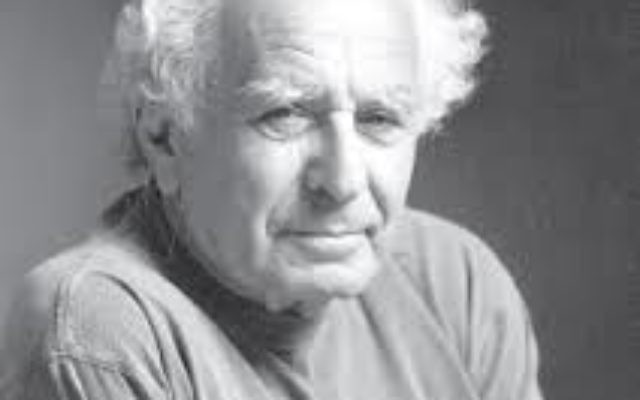Dining on Civilization – One Man’s Opinion
By Eugen Schoenfeld
Those among you who lived in Atlanta before 1970 may remember a quasi-Jewish deli called Ess und Fress, best translated as Eat and Devour. Most of those who remember the eatery do so with a smile. The smile arises out of a sense of nostalgia associated with the Yiddish language rather than with the quality of food.
I venture to say no delicatessen in Europe, at least in Yiddish-speaking Central Europe, would have dared to name itself a place to fress. Devouring food is contrary to Jewish values, for only animals devour their food; we followers of Jewish values consider devouring antithetical to Jewish values.
For Jews, eating is more than the intake of fuel. Eating, I was taught, is not devouring food. Somewhere in the depth of my memory is a Jewish perspective of eating that I believe came from a comment by Rashi, the great Jewish biblical and Talmudic commentator, who proposed (if my memory is right) that Jews practice decorum in eating. Namely, that we eat like menschen, like human beings. We do not take a bone with meat on it and tear the meat with our teeth. Judaism, our culture, is concerned with the civilizing process so that man becomes pre-eminent above beasts.
Perhaps Ess und Fress is a cute name and apropos for an American Jewish deli, but it does not reflect, as most likely the owners of the establishment wanted, a joyful Jewish way of eating.
For millennia Jewish values advocated and emphasized that human behavior should separate us from animals, and collective eating should have a civilizing function. Eating, as I was led to believe by my parents, is an important element in this process.
It should be joyful like the Purim seudah but not boisterous. It should be pleasant and a means to historical education like the seder and spiritual like the Shabbat meals, but drinking should never lead to drunkenness.
In my early teens, and this seems to be a universal teenage characteristic, I was always in a hurry. Often I would grab something and eat it on the run. At such occasions my mother would remind me that as a Jew I should practice menschlichkeit — the behavior that makes me a civilized mensch. She would find it abhorrent if I grew up an uncouth and uncivilized grobber Yid or a prostnyak and thereby shamed the family.
Of course, many behavioral elements symbolically represented one’s social class, which to my mother was tantamount to being civilized. The appropriate presentation of self was high on her list. She would explain to me that wearing a poor quality of clothes does not detract from the quality of a person’s being, not even if the clothes are patched — they merely reflect a person’s income.
But what was absolutely unacceptable to her were dirty, unwashed person and clothes. A significant symbol of civilized existence is the practice of etiquette in eating. I was cautioned by my mother that I should eat like a mensch: sitting at a table, using utensils and a napkin, and not gobbling up my food — especially not eating while standing or taking my food on the run. (She cautioned me that eating while standing would direct all my food to my legs and feet.) Essentially, to her table manners were a symbol of what differentiates us from animals.
The association between eating and being humanized is also associated with the Torah description of the wild and rebellious son referred to as sorer u’moreh. In Deuteronomy 21:18, the Torah declares that the wayward and rebellious son is an uncivilized person who rejects collective mores and is by nature a glutton and a drunkard, a zolel v’soveh. Excessive eating and drinking are expressions of the uncivilized person.
It is also interesting to note the story of Gideon, the commander of the Hebrew army who was ordered to wage war against the Amalekites. G-d suggested to Gideon that his army was too large and that people would most likely attribute the forthcoming victory to the size of the army and not G-d. So G-d told Gideon to reduce the size of his army to merely 300 people.
The criterion for Gideon to differentiate between the acceptable and unacceptable soldiers was the manner in which they drank water from a creek. The unacceptable soldiers were those who lapped up the water like dogs because they were less civilized.
Judaism seeks to elevate the dining experience from merely a physiological requirement into a social activity. For instance, the Talmud declares that three people who eat together and do not have a spiritual conversation should be viewed as though they have eaten from sacrifices to dead idols.
Moses Maimonides proposed that the study of Torah while dining brings peace to people and therefore should be central in the dining experience. Collective eating in this view helps to elevate the human spirit and concern for peace, perhaps the most noble of all aspirations.
The civilizing function of a collective meal is evident at the Shabbat table, where food is consumed leisurely. In my youth it was our custom that at the Shabbat table my father and I had ongoing discourses about various ideals and philosophies in Judaism as well as history in general. The Shabbat table was the time for interaction — in short, for inculcating into me and my siblings humanist ideals.





comments